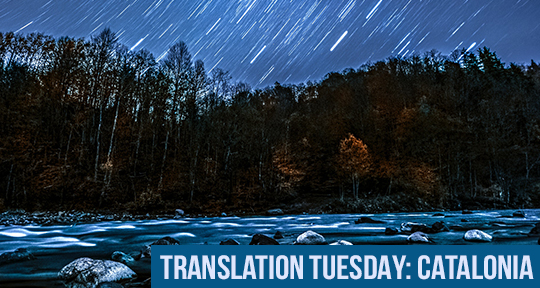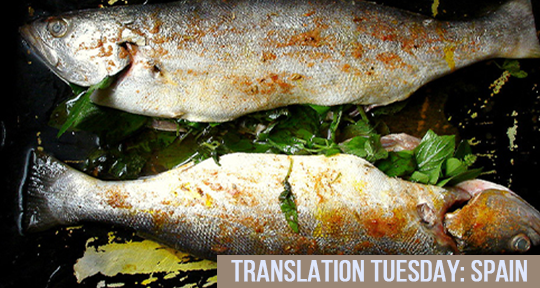This Translation Tuesday, we bring to you a thirteen-part poem by Anna Dodas i Noguer which was first published as a chapbook in Barcelona and was awarded the prestigious Amadeu Oller Prize in 1986. Blending the fragmented images of a snowy landscape with moments of gentle, philosophical questioning—the hypnotic rhythm of Dodas’ language recedes and surges with the force of the river that courses through her long poem. As translator Clyde Moneyhun suggests, this poem is reminiscent of Sylvia Plath’s description of her own collection, Winter Trees. That is, “Landscape with Winter” is a poem which contains what Plath calls “small descriptions where the words have an aura of mystic power.” Marking the first time that Dodas’ work is available in English, we are proud to present to our readers this exquisite work of Catalan poetry.
Landscape with Winter
The tormented earth groans like a heart.
—Verdague
1
Hair is undone
and the stars shoot
across a milky firmament.
The acceleration, the jolt.
My heart fits
in the paw of an ogre.
Gallop, gallop
jump
gallop, gallop
the mountains ferocious
as the sea.
They cry, the bells,
they cry.
A faucet drips
like a streaming
tear.
All is sleeping.
2
A flock of clouds
white boulevards
snow, snow, snow.
Arrow of silence
flattens the air.
Life itself
is mute.
Make me a place, make me a place
surface like skating rink
ice.
I see nothing, I am blind
the light
dazzles
echoes.
It’s snowing.
Sacrifice spaces
take away the image, if you can:
nothing remains
nothing more
than a vast
desolate sorrow. READ MORE…


